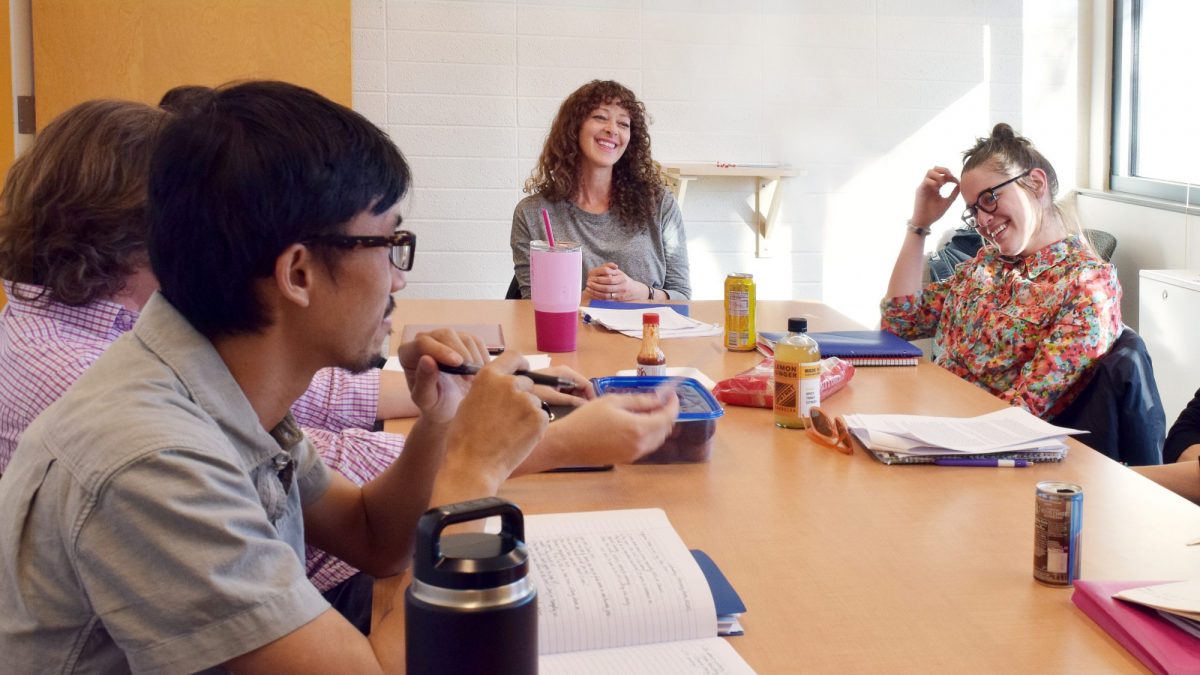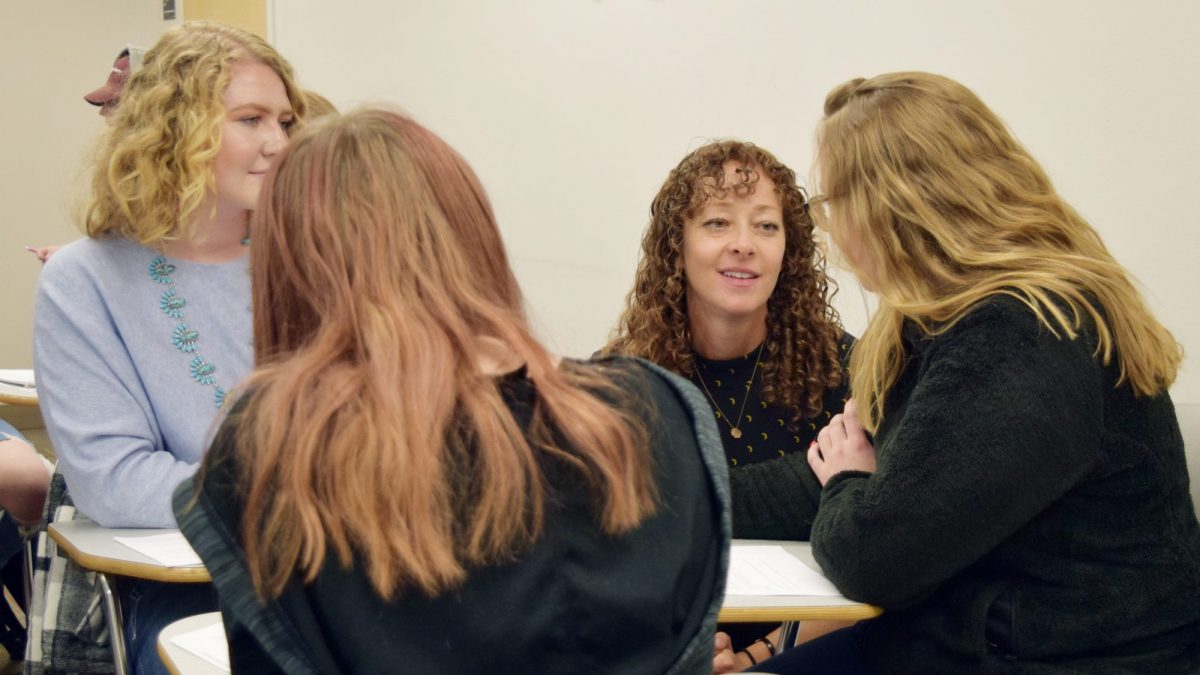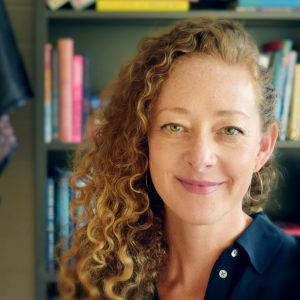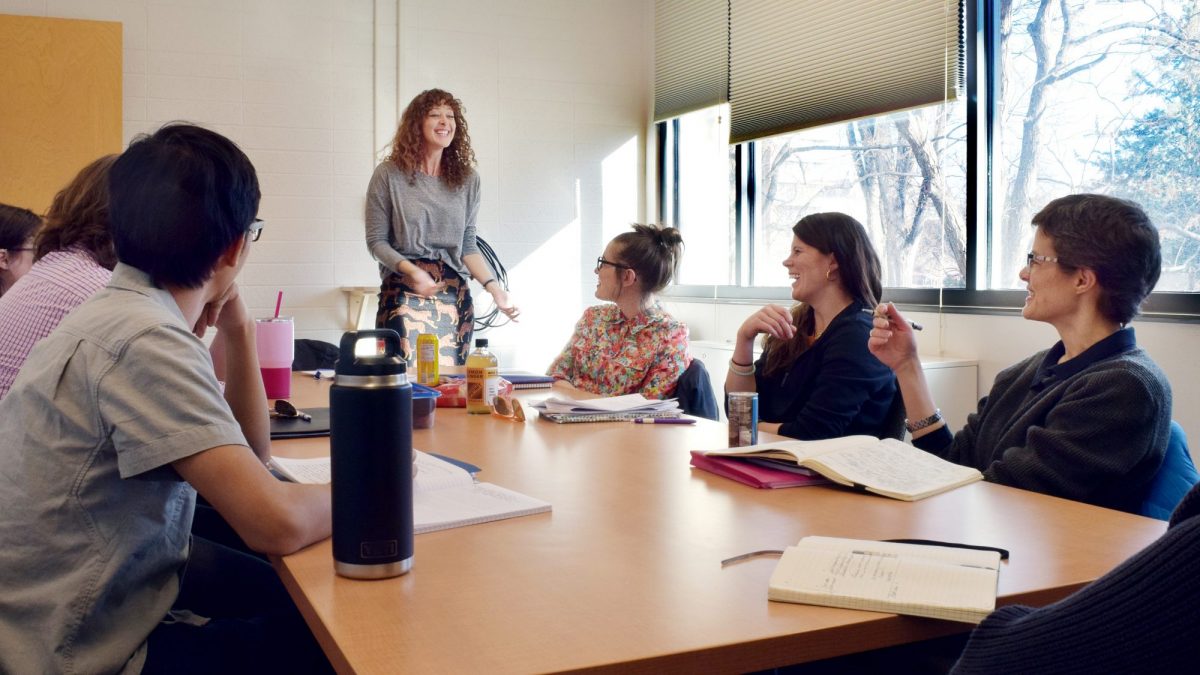Ramona Ausubel captures the human condition in books, teaches students to do the same
By Gabe Saldana
Ramona Ausubel, assistant professor in the Colorado State University Department of English, chuckles at the broadness of her research focus, the world and the human condition.
“It’s looking at what it feels like to exist on the planet and to think about family, friends, all the threads of relationships we keep as people,” she said. “I try to think about what it feels like to be human and to find places for that on the page consistently.”

The Santa Fe native is author of two novels and two short story collections. She is the recipient of numerous accolades, and her recent short story collection, Awayland, has garnered a New York Times Editors’ Choice selection. It also was selected as a finalist for the California Book Award and Colorado Book Award, and it was longlisted for the Story Prize.
The classroom
Ausubel said she always knew she wanted to write, but she learned in graduate school how her work could benefit from the energy and collaboration of a classroom.
“Being in the kind of collaborative atmosphere where people are reading and thinking and making together changed things for me as a writer,” she said.
She credits her teaching as a valuable personal learning tool, and she separates herself from the typical portrait of a solitary writer toiling away in remote surrounds.
“I’m much more excited about what I’m doing if it’s brushing up against the work of others,” she said.

She said inspiration comes from poring over student works in progress, and she examines her own work through the lens of her students’ progress.
“It’s this thing of ‘wow that was such a cool idea! I could have never written that story and I’m so glad it came through my day,’” she said. “And I’m glad I get to pay attention to what could make it better and what this writer is trying to do that no other writer could do, that I couldn’t do.”
In her first year at CSU, Ausubel has taught creative writing and literature courses.
“I taught an advanced undergrad workshop that was just delightful every day,” she said. “They are fantastic students and talented and wise and warm, so I hope I get to do a lot more of that.”
This semester she teaches a graduate fiction workshop and a course on short stories — her personal favorite. She enjoys the short story’s ability to capture an audience who might question the feasibility of an invented world in the span of a full novel.
“You can take a risk that doesn’t have to occupy 300 pages,” Ausubel said. “I have a story in my first collection about a place where people grow a new arm every time they fall in love.”
“But this story’s only 11 or 12 pages, and in that space, I think I can make you trust this idea,” she said. “Then I can take these weird risks and show all these different versions of love arms and hands to try to say something true about what love does to us.”
Her new novel

At the same time, as Ausubel writes her third novel, she notes her appreciation for growing a narrative over a longer book.
“This question, which is at first one thing, can roll around, become something else, grow, shrink and get tangled up with other ideas,” she said.
The upcoming novel follows a scientist couple who leave their research institution with wooly mammoth embryos to produce a new calf.
“It’s a question of human ingenuity and imagination and the limits and opportunity of those things,” she said. “There are also teenage daughters who are not on board with the project, so there are family dynamics.”
Ausubel says she feels connected to the sciences. Her husband’s background is in environmental science, and her uncle is an oceanographer who has invited her to academic conferences. She recalled one aboard a boat.
“In the hull, they held conferences on bubble theory and things that were deeply beyond my comprehension,” she said. “It was so interesting to be in a world that’s completely fact-based but still has so much imagination in it, which requires the same leap of asking ‘what if.’”
She said some semblance of experimentation comes from observing how fictional characters react to new inputs as they take shape on the page.
“I feel a huge kinship to science even though in some ways it couldn’t be a more different discipline,” Ausubel said.
What’s next
In the coming semester, Ausubel plans to finish the new novel. Its title is forthcoming and will likely follow completion of the story, Ausubel said, as is typical of her novels to date.
“I’m looking forward to a productive year and ready to see what 2020 has in store,” she said.
Ramona Ausubel holds a Bachelor of Arts degree in poetry and cultural studies from Pitzer College and a Master of Fine Arts from University of California, Irvine. She is recipient of the PEN/USA Fiction Award and the Cabell First Novelist Award. She was a finalist for the New York Public Library Young Lions Award and her work has appeared in The New Yorker, The New York Times, Tin House, One Story and Ploughshares, among many other journals.
